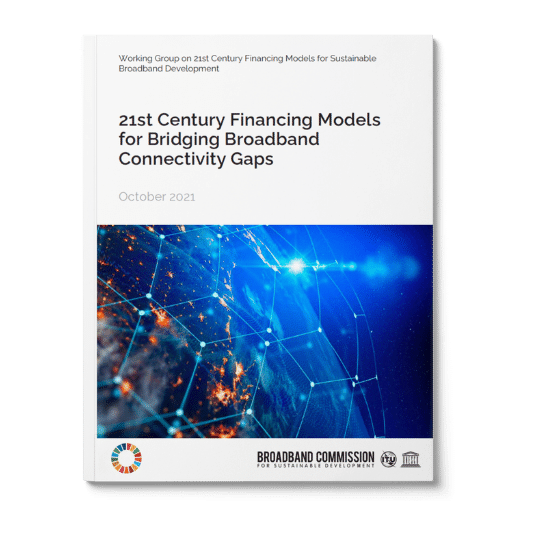The Working Group for 21st Century Financing and Funding Models for Sustainable Broadband Development was established as a cross-sector group of thought-leaders with representation from national regulatory authorities, telecommunications operators, financial institutions, trade associations, academics and not-for-profit development organizations operating under the auspices of the Broadband Commission for Sustainable Development. Its objective was to explore and identify new and innovative funding, financing and investment strategies to address the challenge of extending broadband connectivity and services to the 2.9 billion people who remain unconnected today, particularly in Africa, Asia, South America and the Pacific Islands. The Working Group was co-chaired by Scott Gegenheimer, CEO – Operations of Zain Group, and Bocar A. Ba, CEO of SAMENA Telecommunications Council.
The Working Group on 21st Century Financing Models for Sustainable Broadband Development recognizes that to address the critical issues of access, affordability, and equality there will have to be new approaches that support the development of digital infrastructure, especially where it would otherwise not be profitable.
Additional support for the confluence of factors beyond infrastructure is also needed to create and sustain socially relevant and functioning digital ecosystems. Establishing these new approaches will mean resolving complex concerns and attending to stakeholder interests that demand thoughtful multilateral engagement. It is imperative to come to solutions that reflect the interests of all parties, which do have a direct role to play to help create the global infrastructure and also help sustain social and economic ecosystems that will define the next century, and beyond.
With the combined efforts of the Broadband Commissioners and external experts, Working Group members have identified a variety of innovative models through novel combinations of traditional ones as well as employing completely new ones. The Working Group report integrates these models as core components into four larger strategic recommendations representing the report’s key outcomes, that structure the document and that reflect current economic and political realities. The strategic recommendations focus on broadening the base of contributors: earmarking proceeds from ICT sector participants, reforming Universal Service and Access Funds (USAFs), and creating an international fund.

